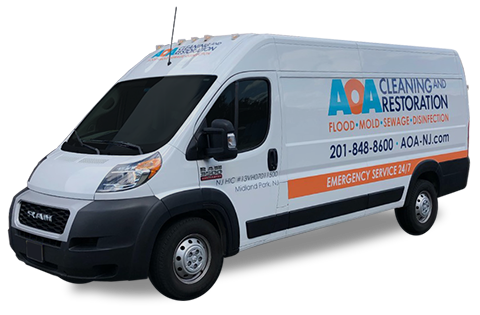As a homeowner, it’s essential to protect your investment by preventing water damage. Water damage can cause extensive and costly damage to your home, including mold growth, structural damage, and health hazards. By implementing expert water damage prevention tips, you can safeguard your home and avoid expensive repairs in the future.
There are several steps you can take as a homeowner to prevent water damage. In this section, we’ll explore the most effective water damage prevention tips to keep your home safe and dry.
Key Takeaways:
- Implementing water damage prevention tips can help avoid costly repairs and ensure the longevity of your home.
- Water damage can cause mold growth, structural damage, and health hazards.
- As a homeowner, you can prevent water damage by fixing leaks promptly, ensuring proper drainage, and utilizing tools like sump pumps and water alarms.
Identify and Fix Leaks Promptly to Prevent Water Damage
One of the most crucial steps in preventing water damage is identifying and fixing leaks as soon as possible. Even a small drip from a faucet or a tiny leak in a pipe can lead to serious water damage if left unaddressed. Here’s what you need to know to keep your home safe:
Tip #1: Regularly inspect your plumbing for leaks. Look for signs of water damage, such as water stains on ceilings or walls, musty odors, and damp spots. Pay attention to your water bill; if it suddenly spikes, it could be a sign of a hidden leak.
Tip #2: Don’t delay fixing leaks. If you notice a leak, address it right away. The longer you wait, the more damage it can cause. Plus, the potential cost of repairs will only increase.
| Quick Fix | DIY Repair | Professional Help |
|---|---|---|
| If you have a leaky faucet: tighten the fixture or replace the washer | If you have a leaky pipe: use a pipe clamp or epoxy putty | If you have a burst pipe or significant damage: call a plumber immediately |
Tip #3: Address exterior leaks too. Check your roof, gutters, and downspouts for damage or debris that could cause water to seep into your home. If you notice any issues, hire a professional to fix them before they become major problems.
By being vigilant and addressing leaks promptly, you can prevent water damage and keep your home safe and sound for years to come.
Ensure Proper Drainage Around Your Home
Proper drainage is essential to prevent water from accumulating around your home’s foundation. When water pools around your foundation, it can penetrate the walls and cause damage to your home’s structure. To ensure proper drainage, take the following steps:
- Maintain your gutters and downspouts: Clean your gutters and downspouts regularly and ensure that they are free from debris. This will help water flow properly and prevent blockages that can lead to water damage.
- Direct water away from your home: Ensure that your downspouts are directed away from your home’s foundation. You can use downspout extensions or splash blocks to direct water flow away from your home.
- Grade your lawn: Ensure that your lawn slopes away from your home’s foundation. This will help water flow away from your home and prevent pooling around your foundation.
By following these steps, you can maintain proper drainage around your home and prevent water damage from occurring.
Install and Maintain Sump Pumps and Water Alarms
If you live in an area with high water tables or prone to flooding, installing a sump pump is an excellent way to prevent water damage. Sump pumps work by pumping out excess water that collects in a sump basin and redirecting it away from your home’s foundation. Installing a sump pump in your basement or crawl space can be an effective way to keep your home dry and prevent water damage.
In addition to sump pumps, water alarms are crucial tools for water damage prevention. Water alarms can detect water leaks and alert you to potential flooding, allowing you to take immediate action before the damage becomes severe. These alarms are especially useful if you are not usually at home or if you have a second home that you visit infrequently.
When installing sump pumps and water alarms, it’s essential to ensure that they are correctly maintained. Sump pumps should be inspected and serviced regularly to prevent malfunctions and keep them functioning optimally.
Having a combination of sump pumps and water alarms can provide an added layer of protection against water damage and give homeowners peace of mind. By installing and maintaining these tools, you can help prevent costly repairs and protect your home from water damage.
Conclusion
By implementing these expert water damage prevention tips, you can effectively protect your home from costly repairs and ensure its longevity. Remember to promptly identify and fix leaks, maintain proper drainage around your home, and consider installing sump pumps and water alarms for added protection.
Don’t wait until it’s too late – take action now to safeguard your home from water damage. With these tips, you can have peace of mind knowing that you are doing your part in protecting one of your most valuable assets. Stay proactive and keep your home safe!
FAQ
How can I prevent water damage in my home?
There are several steps you can take to prevent water damage in your home. Some essential tips include identifying and fixing leaks promptly, ensuring proper drainage around your home, and installing and maintaining sump pumps and water alarms.
Why is it important to fix leaks promptly?
Fixing leaks promptly is crucial because even small leaks can lead to significant water damage over time. Addressing leaks as soon as possible helps prevent further damage to your home’s structure and can save you from costly repairs in the future.
How can I ensure proper drainage around my home?
To ensure proper drainage, it’s important to maintain your gutters and downspouts, ensuring they are clear of debris and functioning correctly. Additionally, grading around your home should slope away from the foundation, directing water away from your property.
What are sump pumps, and why are they important?
Sump pumps are devices installed in basements or crawl spaces to prevent flooding and water damage. They pump out excess water that accumulates in the sump pit, helping keep your basement or crawl space dry. Sump pumps are important in areas prone to heavy rainfall or areas with a high water table.
How do water alarms help prevent water damage?
Water alarms are devices that alert you to potential leaks or flooding in your home. They can be placed near water sources, such as washing machines or water heaters, and will sound an alarm when they detect water. By providing early warning, water alarms allow you to take immediate action and prevent extensive water damage.




















